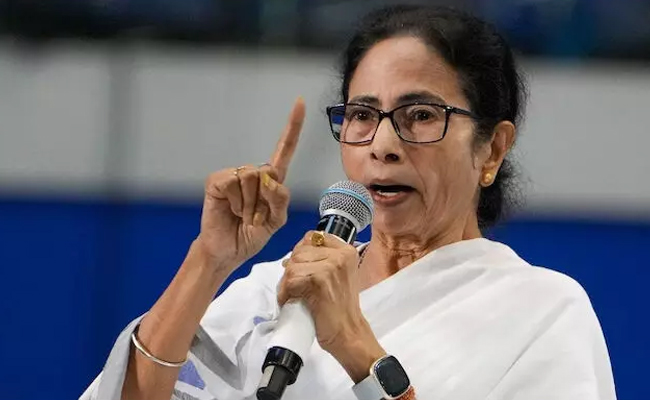With the detection of first case of Zika Virus in Karnataka, the people in the state have been vary about the virus and the risks that it comes with. Several media and social media posts have also led to the triggering of panic among the people of the state and neighboring states over a possible outbreak of the virus in the region.
One of the leading Physicians of Mangaluru, Dr. Haroon Hussain, MBBS, MD, and a senior doctor at the Department of Medicine at KMC Hospital Mangalore spoke to Vartha Bharati about the virus, its risks, and possible measures of prevention to help people better understand the Zika Virus.
Speaking to Vartha Bharati, Dr. Haroon said the virus is a member of the virus family Flaviviridae and its name comes from the Ziika Forest of Uganda, where the virus was first isolated in 1947.
“Zika Virus is significant because it poses the highest threat to pregnant women and the fetus. When a pregnant woman is infected with the virus, there are high chances of the fetus developing severe complications including but not limited to birth defects.” Dr. Haroon said.
“It is spread by Aedes mosquitoes and albopictus who majorly bite people during early mornings and during the daytime. These are same mosquitoes that cause Dengue and Yellow Fever.
“An outbreak of this virus was last reported in 2015-16 in South America. Some of the other major sources of transmission apart from mosquito bites are through pregnancy to fetus, sexual transmission, and blood transfusion and organ transplants.” He added.
“What happens is, an infected mosquito bites a person and the virus is transmitted into the blood. The virus then affects other organs of the body and the patient then develops symptoms. Again, what is notable is the symptoms develop in only about 20-25% of people while the remaining patients what develop mild or no symptoms.
“Common symptoms of the infection includes fever, headache, body pain, joint pain and redness of eyes. Patients in rare cases of infection might also experience hearing loss, skin rashes, and in very few cases they may also experience symptoms and issues in heart and brain.” Dr. Haroon added.
When asked about the post-infection complications, Dr. Haroon added that in rare cases patients can also suffer from paralysis but insisted that the number of such cases being recorded are very low.
Detailing about the risks the virus poses to fetus, Dr. Haroon said the virus can critically affect fetus if the mother is in her first or second trimester of pregnancy. In such cases, the fetus can also die, he suggested.
“In most of the cases with pregnancy transmission, it affects the cells that are responsible for the development of the growth of the brain of fetus. So the child is likely to bear abnormally developed brain along with other complications.” he added.
About the measures for prevention of the infection, Dr. Haroon opines there is an immediate need to spread awareness about the virus and its complications adding that people should also be careful and precautious in their own surrounding along with the authorities who need to take strict measures to box the spread in case of an outbreak.
“The best way to prevent Zika is to protect yourself from mosquito bites. Everyone, including pregnant and breastfeeding women, should take steps to prevent mosquito bites. These mosquitoes usually breed in stagnant water, so people should be cautious about that and should immediately get rid of places and spots where water is stagnant. People who travel from areas where the virus is active should take measures to avoid contact with pregnant women and other family members.
“During the first week of infection, Zika virus can be found in the blood and passed from an infected person to another mosquito through mosquito bites. An infected mosquito can then spread the virus to other people. Hence people need to be careful and cautious after travelling etc.” Dr. Haroon further suggested.
The research for the developing of a vaccine for Zika Virus is under the research phase with experts and researchers believing the vaccine will not be widely available for a few more years.
Let the Truth be known. If you read VB and like VB, please be a VB Supporter and Help us deliver the Truth to one and all.
Shivamogga (Karnataka) (PTI): Three persons have been arrested in connection with cyber fraud cases involving more than Rs 82 crore and 352 complaints registered nationwide, police said here on Friday.
The accused have been booked by the cybercrime police station under Section 66(D) of the Information Technology Act and Sections 318(4) and 319(2) of the BNS.
According to Karnataka Police, the prime accused, 43-year-old Jagadish C, allegedly lured a complainant, Wilson, with a promise of commission and persuaded him to open a bank account.
Jagadish later took control of the account and, by impersonating the complainant, fraudulently transferred large sums of money, police said.
Jagadish, a resident of Sharadamma Compound in Sharavathi Nagar, Shivamogga, runs an electronics business, police said.
The other two accused have been identified as Arshad (39), a fish trader from Shankarpura in Chikkamagaluru, and Ananth T (34), a marketing professional from Hosamane in Shivamogga.
Police said 15 bank accounts used for illegal fund transfers have been frozen.
More than Rs 14.71 crore was routed through these accounts linked to over 352 fraud complaints registered nationwide.
The total cheating amount stood at Rs 82 crore, police said.
Two mobile phones, 11 ATM cards, nine QR code scanners and 15 Airtel SIM cards have been seized from the accused.
The trio was produced before a court, which remanded them to judicial custody, police said, adding that efforts are on to trace other absconding suspects.





